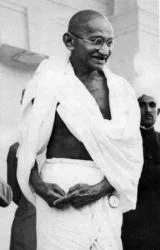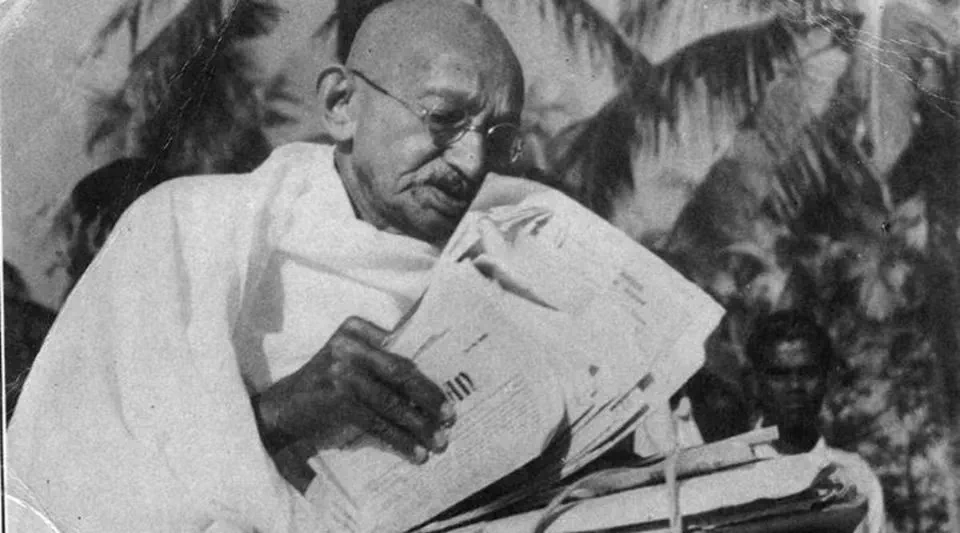Sir Winston Churchill
One simply cannot discuss British politics wi...
By Susan Giles1411

0

A lot of the time, when people think of global peace, or more particularly, peace in India, they think of Mahatma Gandhi. That is because he was a liberal soul who long fought for his country’s independence and global peace. The Indian hero is recognizable all over the world, and he is known for his activism work that changed the global political sphere and created influential effects on everyone who knew him and his work.
Mohandas Karamchand Gandhi, who is more commonly known as Mahatma Gandhi, which means Great-Soul, was born in October 1869 in Porbandar, India. Gandhi was the youngest of his siblings. He was raised into a Hindu Modh family, and his father was the Chief Minister of Porbandar and had married four wives.
Gandhi was the youngest son of his fourth wife. Gandhi’s mother, Putlibai, on the other hand, was way too immersed in religion. Putlibai spread her time between her home and practicing her faith, so she taught her youngest boy how to find his faith as well.
The international icon was born into a relatively privileged family, meaning he had a high standard of living and received a proper education. However, he was not the best of students and was described as mediocre at best. The boy was married at a very young age, specifically when he was only 13-years-old to a girl of the same age.
The marriage cost him a year at school, but he did not seem too bothered about it. He was not a rebellious youngster either. So when he skipped school, he did not just wander off to play outside or socialize with other children. Instead, he preferred to go on long solitary walks, where he got to think and meditate for long periods.
When he was not on one of his long walks, he would instead take care of his father, who started getting ill because of old age or helping his mother in any of her house chores.
Although Gandhi was a calm child, who did not cause much trouble, he grew up to be a little bit of a rebel during his adolescent years. He started smoking, stealing, and hid the fact that he was an atheist for a while. During that time, he ate meat, which for a religious family like his, was forbidden and contemned.
After each time he did something wrong, he would tell himself that it was the last time and that he would never do it again. He really did want to change but was lacking motivation for a while.
The young Gandhi enrolled at the University of Bombay at the time when he had his firstborn child in 1888. That was a turning point for him because that was when he realized how unhappy he was at his old college and that he did not want to pursue the education set for him by his parents, nor did he want to pass the bar.
That is why when he was offered a chance to study at University College London later in the same year, he jumped at the chance. He traveled quickly, but English was a challenge for him for a while as it was never his first language.
Following a few years of studying in England and passing the English bar, Gandhi returned to India, where he struggled for a while to find any work. He then moved to South Africa where he had finally managed to get himself a contract working for an Indian law firm.

Although his work contract at the South African law firm was initially for just one year, he continued living in the country for the following 21 years, and that was where he peaked and made the strongest impact on the world.
Gandhi noticed how badly segregation was in South Africa and how racism went deep into every corner of the country and decided that he was not going to stand for it. At that point, he founded the Indian Congress in the Natal region of South Africa and started dressing in his trademark Indian attire.
As a result of his avid activism, Gandhi suffered from six assassination attempts throughout his lifetime. He was often humiliated and challenged by people in power who opposed his views and leadership of the Indian minorities in South Africa.
During the second world war, he fought long and hard for India to have its sovereignty back after years of British colonialism. He was arrested and taken to prison as a result. That never stopped him from calling for peace talks the second he walked out of jail.
The Indian peacemaker died on the 30th of January 1948, while he was on his way to a prayer meeting in Delhi. A man named Nathuram Godse shot him three times after getting too close to him and, he died right then and there.
The whole world was horrified by Gandhi’s death at that time, and the assassin along with one of his conspirers were both arrested and later executed for their unimaginable actions. Gandhi was cremated as per his religious traditions and incarcerated in the same place his late wife was. His memorial has the words “Oh, God” engraved on it as that was what was said to be his last words ever on the day of his assassination.
Throughout his lifetime, Gandhi was nominated for five Nobel peace prizes, although he never actually won any of them. On the year he passed away, the award was not given to anyone with the excuse that no living person deserved the prize at the time. He spent years advocating for non-violence and non-discrimination policy in South Africa, India, and across the whole globe.
His whole life was one long educational journey that inspired many others, especially leaders of different countries, to follow in his footsteps and make real change in the world. To this day, India celebrated the legend’s birthday every year on October the 2nd with a national holiday made to remember his remarkable work and sacrifices.
Updated 4 years ago